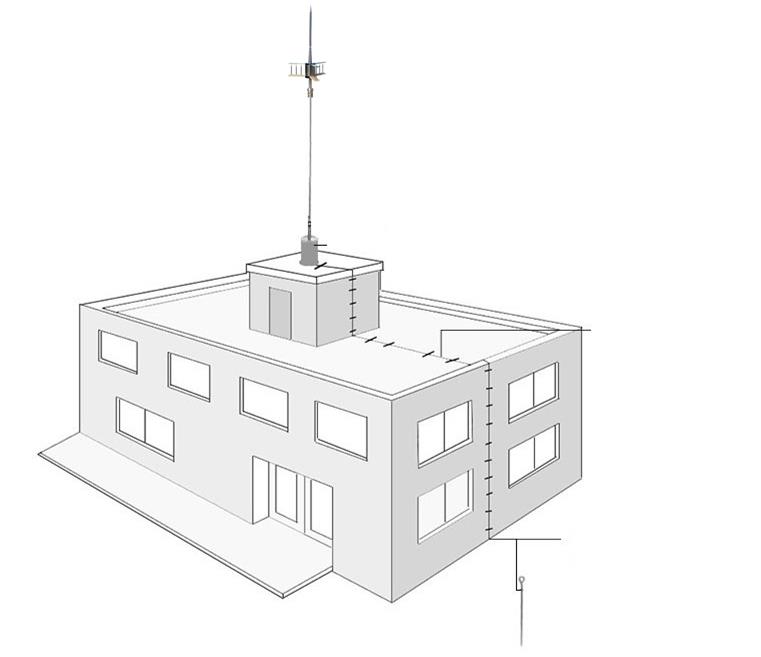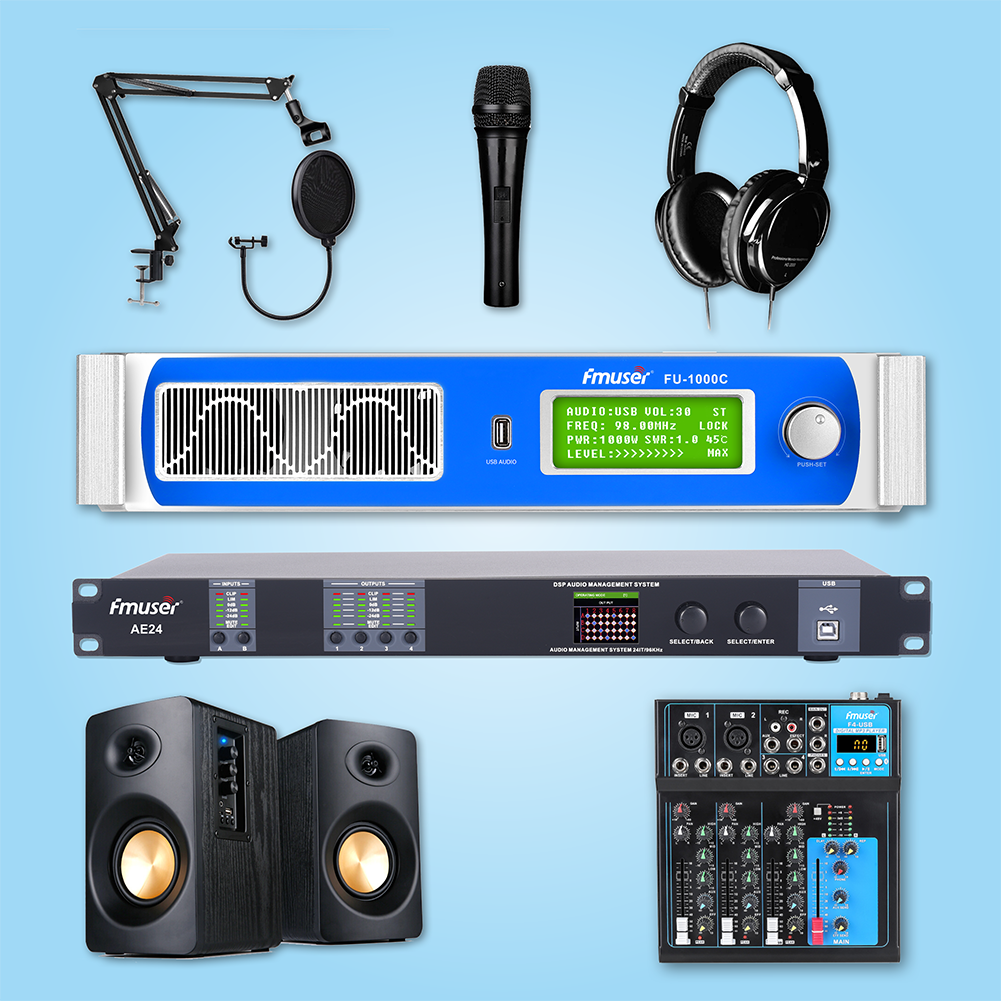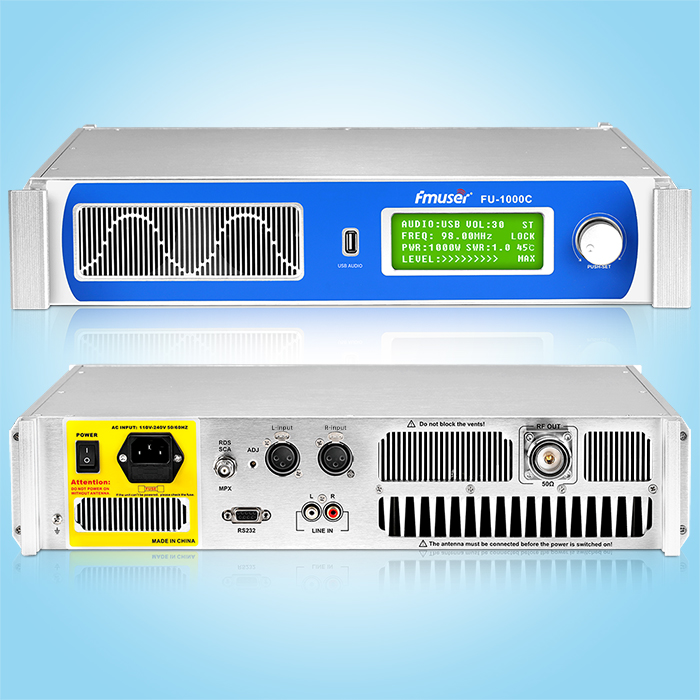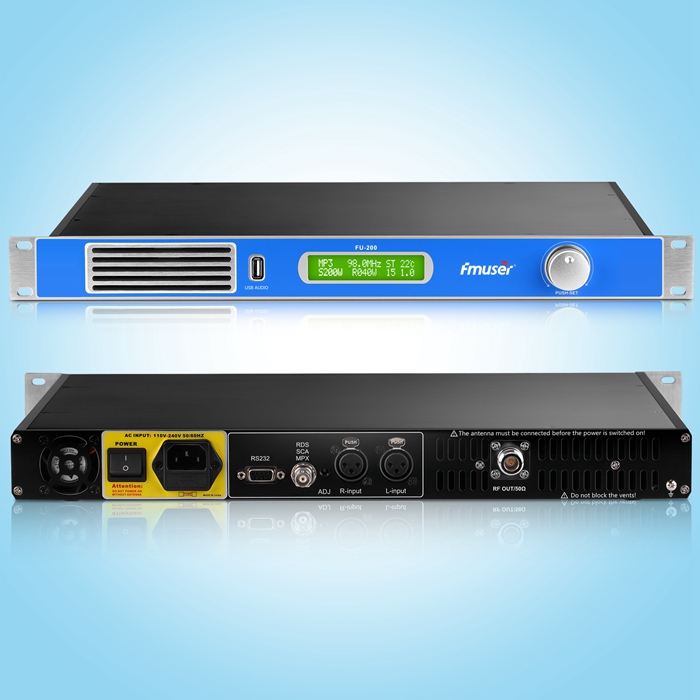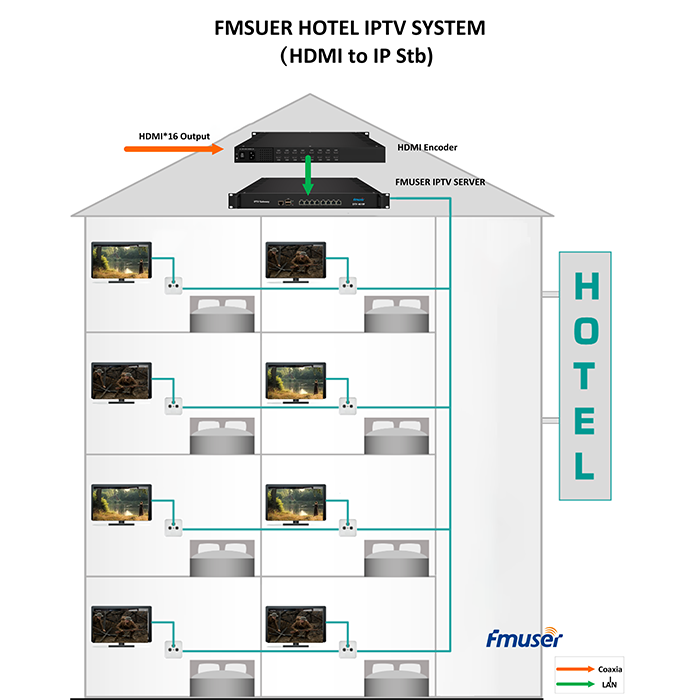IPTV (InternetProtocolTVorInteractivePersonalTV) is also called interactive network TV. It uses the infrastructure of broadband network, uses home TV or computer as the main terminal device, integrates various technologies such as Internet, multimedia, and communication, and provides it to home users through IP protocol. A new technology for a variety of interactive digital media services including digital TV. The core framework of IPTV services is mainly composed of four major parts: content operation platform, service operation platform, service bearer transmission network, and user terminal network. IPTV technology involves various technologies such as video encoding and decoding, network distribution, digital copyright protection, and terminal access.
IP set-top box is a video decoding terminal, equivalent to a computer with its own embedded operating system. It can be seen from Figure 1 that one end of the IP set-top box is connected to the IPVT network through DSL or Ethernet, and the other end converts the media stream and other information transmitted through the network into analog video and audio output to the TV, so that video on demand, Web browsing, games and other functions, it has basic functions such as computer data exchange, and can be directly operated by remote control or PC.
1. The composition and function of iptv set-top box
The set-top box is composed of software and hardware. The hardware of the set-top box includes the main chip, memory, tuner and demodulator, return channel, CA (Conditional Access) interface, external storage controller, and video and audio output. The software is divided into three layers: application layer, intermediate interpretation layer and driver layer, each layer contains many programs or interfaces.
Compared with traditional digital set-top boxes, IP set-top boxes realize the integration of video, voice, and data, which is the so-called triple play service (TriplePlayService). The system architecture of the IP set-top box consists of three independent subsystems: TV unit, PC unit and conditional access (ie encryption system, CA) unit. The TV subsystem is composed of a frequency modulator and a video decoder, which are used to process digital streaming information; the CA subsystem allows the service provider to have the control ability to achieve proximity to the user, and to know when the user is watching what program; the PC subsystem Most of them are modular designs. STB designers can increase or decrease the components in this system according to their needs. Since IPSTB's goal is to provide Internet service functions, its PC system must provide TCP/IP Stack protocol, and has a better storage scheme.
It can be seen that the functions of IP set-top boxes mainly include the following three aspects:
1) Support current LAN or DSL network transmission, receive and process IP data and video streams;
2) Support MPEG, WMV and Real video decoding;
3) Support user authentication function, realize user access control, billing and other management functions through interaction with IPTV system.
2. Classification of iptv set-top boxes
According to different hardware and software, IP set-top boxes have different classification methods
1) Classification based on hardware
IP set-top boxes can be divided into the following three types according to the different CPU chips used in the base:
(1) Set-top box based on dedicated chipset (ASIC/SOC codec chip)
In addition to the processor, the dedicated chipset also integrates some other IP (LntelligentProperty) modules, such as Videoin, Videoout, Audioin and Audioout, etc., and some also have image compression hardware acceleration modules. Since the dedicated video compression chip carries a fixed compression module, a fixed processing method and a fixed microcode, the price of traditional ASCI/SOC-based set-top box products is relatively low, but due to the implementation of the full hardware chip, operators cannot upgrade through software. To improve product performance, there are also major problems with the adaptability of this set-top network.
(2) Based on X86 platform
The embedded system based on the X86 architecture CPU has the following advantages: one is that it can encode and decode files in different formats; the other is that the CPU of the X86 architecture has a relatively complete application software, and the maintenance cost is low; the third is the embedded system based on the X86 architecture. The system can easily share resources with PC.
(3) Based on multimedia processor technology
The method based on the X86 platform occupies most of the processing power of the CPU when in use. Therefore, this method is not suitable for some. So a stand-alone set-top box based on multimedia processor technology appeared. The high-speed computing power of this chip can completely realize communication terminals suitable for different protocols. Using these chips can easily realize MPEG video and audio processing, H.263 video processing, as well as DVD, set-top box, digital TV, etc.
Due to the use of real-time video decoding function chips, the video processing speed is significantly improved. With real-time encoding, the entire video processing delay is small, which is especially suitable for video live broadcast system applications; the system is equipped with USB, IDE, PCMCIA and Ethernet interfaces to enable IPTV terminal functions The expandability is enhanced, the memory occupies less, the hardware structure is compact, and the cost is not high.
2) Software-based classification
The operating system is the core software in the set-top box. The operating system in the set-top box is not large, but it is required to work in a real-time environment and run in a small internal memory space. This kind of operating system is called a real-time operating system ( RTOS), currently there are three main categories: VxWorks, Windows CE, and embedded Linux.
(1) Embedded WinCE terminal
The biggest feature of WinCE is that its API is compatible with Win32, which is conducive to the use of Windows environment to develop WinCE applications. In addition, WMV player can also run directly on WinCE OS. Many ready-made Windows components can be applied to network management on the terminal with a little modification. As well as video stream control and other functions, it can fully share the excellent results of Windows Media such as MMS. Microsoft is currently launching WinCE5.0 and expanding the open source code of some programs. Under the authorization of this open source program, Microsoft has opened 2.5 million lines of source code programs as evaluation kits. Any individual or manufacturer can download these source codes for modification and use. In the future, OEMs will need to authorize according to the execution period, and pay a few dollars per machine for the WinCE5.0 core. As a new entrant in the market, Microsoft emphasizes lower development costs. Microsoft added file system, IPv4/IPv6, WLAN, Bluetooth and other networking functions in WinCE, as well as Windows Media Coder and other functions.
However, the disadvantages of this type of terminal are: the application source code is not public, and the terminal adopts WinCE must pay royalties to Microsoft; in addition, the WinCE code is huge, occupies a lot of ROM and RAM, and requires high-performance X86 microprocessor support, all of which are This has caused the terminal cost to remain high.
(2) Embedded LINUX terminal
This kind of terminal often takes a dedicated multimedia microprocessor as the core, supplemented by an Ethernet interface and a video interface to form a system. The multimedia microprocessor itself not only has embedded RISC (reduced instruction set CPU) to run system software and application software, but also has MPEG2 or MPEG4 real-time decoding function chip. After introducing Linux OS and necessary video and various auxiliary interface drivers, It becomes a complete IPTV network terminal application environment.
The advantages of using the Linux development platform: First, the Linux source code is open, there are a large number of free excellent development tools and application software available, and there is no need to pay a license fee for each application; second, there is a large development group, convenient technical exchanges, and low software development and maintenance costs; Finally, Linux itself is stable, the kernel is well-soldered, it requires less resources for operation, has excellent network functions, and supports a huge amount of hardware. In short, high cost performance is its biggest feature.
However, this system has certain limitations in its ability to adapt to low bandwidth. Due to the use of hardware real-time decoding, the performance improvement of the decoder is restricted by the development of chip technology, so QPEL and GMC coding tools are omitted, which makes the advantages of MPEG4 ASP high-definition performance and suitable for DSL low-bandwidth network transmission insufficient Play, some OS based on μCLinux, decoder is better than incomplete MPEG4 ASP terminal, the line working bandwidth is 3Mbit/s, at the same playback resolution D1, the ability to be suitable for the low bandwidth of DSL network is inferior to the WMVx-based Codec terminal. The price of this kind of set-top box is low, but due to poor compatibility, the cost of building the system server and collecting media files will be relatively high.
VxWorks is a real-time operating system launched by Wind River System in the United States. VxWorks is a high-performance, scalable embedded real-time operating system running on the target machine. With its good reliability and excellent real-time performance, it is widely used in high-precision technology and real-time requirements such as communications, military, aviation, aerospace, etc., such as satellite communications, military exercises, ballistic guidance, and aircraft navigation. Wait.
Of course, set-top boxes can also be divided into basic type, professional type, comprehensive type, etc. according to the function level and price difference of the set-top box.
3. Interface between iptv set-top box and IPTV platform
The interface between the set-top box and the IPTV platform involves a lot of content, among which the user's business process can be divided into three categories: authentication interface, payment interface and service use interface.
1) Authentication interface
The authentication interface includes network layer authentication and application layer authentication, which is the process of realizing the early Internet of the set-top box, that is, the process of Internet users accessing the Internet. According to the communication method between the user and the network device, the network layer access authentication methods that are currently used more are divided into two types: PPPoE and DHCP+WeB.
(1) PPPoE technology
At present, PPPoE authentication technology is the most widely used in Ethernet access and ADSL access. Its networking principles are basically the same. They use switches or DSLAMs to connect users to the network, and set BRAS equipment behind the switches and DSLAM to terminate PPP. The broadband access server that terminates the PPP connection can separately manage the PPP connection, and can separately perform statistics on the user's online service time and traffic information, and various billing methods can provide the necessary user's online information.
The essence of PPPoE is to run the PPP protocol on the Ethernet, and establish a PPP point-to-point channel between the user end and the broadband access server. In other words, if the multicast service is enabled between the user host and the BRAS, the multicast data must use the BRAS as the receiving end replication point, which will cause a large amount of multicast data to traverse the network and DSLAM equipment, contrary to the original intention of multicast. Therefore, the PPPoE access mode restricts the existence of multicast protocols and affects the development of video services.
(2) DHCP+Web technology
DHCP+Web authentication needs to be used in conjunction with the DHCP server and the Web authentication server. The Host first obtains an IP address through DHCP and communicates with the Web authentication server. It can also enable the user to access only some internal servers. Then, the access server forces the user to connect to Web authentication server, and pop up the authentication page in the browser. Enter the key and password in this page, and the Web Server as the Client of Radius will transmit the authentication information to the Radius Server to authenticate the user. After the authentication is passed, the user obtains a new legal IP address and can access the Internet or a specific network.
In the DHCP+Web authentication method, there is no PPP-like layer 3 channel between the user host and the access server, and there is no restriction on the multicast protocol. If the user mainly accesses the switch between the access servers or the DSLAM can support IGMP Snooping, the multicast service is easy to develop. However, DHCP itself has many shortcomings, especially security issues. How to ensure the legitimacy and authenticity of user information is a key issue that DHCP needs to solve.
(3) Improvement plan
It can be seen that the network layer authentication can adopt PPPoE authentication or DHCP mode according to the degree of STB terminal support. However, neither of these two authentication methods can meet the needs of IPTV service development. Therefore, we need to provide corresponding solutions for the current authentication methods, and under the premise of ensuring the development of IPTV services, reduce the major specification changes to the existing network as much as possible to ensure the support of the original services.
For the STB terminal adopting PPPoE for authentication, the main problem to be solved is the distribution of data. Therefore, different service distribution channels can be adopted for different services of users. In other words, on the one hand, the BRAS device is required to support PPPoE authentication for IPTV services, and its related unicast data is delivered through the PPPoE channel; this requires the BRAS to be able to distinguish the types of user services through the authentication information, and the DLSAM device needs to support multicast The control of distribution and multicast groups also requires STB equipment to support dual protocol stacks. In this way, the functions of the original authentication system can be guaranteed, and the smooth development of the multicast service can also be ensured at the same time.
For the DHCP authentication method, the main problem is to ensure the security and authenticity of DHCP access, which requires the introduction of the OPTION82 option in the DHCP packet; for situations where multiple terminals use DHCP at the same time, in order to distinguish these terminals, it is also necessary Introduce the OPTION60 option. The DHCP OOPTION82 option is usually used by the DSLAM device to transfer the user's product information and device information to the user's DHCP message, and the DHCP server executes the IP address allocation strategy or other strategies by identifying the OPTION82. The OPTION60 option is usually provided by the terminal, and different types of terminals can be identified by setting different OPTION60. Through the OPTION60 option, different terminals can be allocated different address spaces. However, the introduction of OPTION82 requires the support of DSLAM, and the current operating equipment does not have this function, so network equipment needs to be modified.
The current solutions tend to adopt DHCP and adopt the independent IPPOOL approach. This solution can realize the isolation between IPTV services and traditional Internet services through IP-specific policy configuration. When the number of IP-TV users is not high, a small amount of capital can meet business requirements.
(4) Application layer certification
Application layer authentication implements the identity authentication process of set-top box users in the IPTV system. Only users who have passed application layer authentication can consume and use various types of services provided by IPTV stations. Only a secure application layer recognition technology can ensure that content providers can safely use wonderful content on the IPTV system.
2) User consumption interface
The user consumption interface needs to implement a complex consumption process of system price prompts, user confirmation purchases, and system deductions. According to different billing methods and payment methods, the flow of the interface is also different.
3) Content usage interface
The content use interface realizes the process that users obtain different application services from content operations. The applications provided by the IPTV system have become more abundant, such as live video, video on demand, games, karaoke, information retrieval, etc. As the function of the set-top box becomes more powerful, network transmission With the continuous increase of bandwidth, we have reason to believe that various Internet applications on the PC will be presented on the user's TV through the set-top box.
4. The development of IP set-top boxes
From digital TV set-top boxes (DVB-C), satellite set-top boxes (DVB-S), network TV set-top boxes, set-top boxes to the most prosperous IP set-top boxes, the team of set-top boxes continues to grow and develop. For the large-scale development of set-top boxes and the large-scale development of machine-card separated set-tops, set-top boxes with separated machine-cards have gradually become a trend. In addition, dual-mode set-top boxes and software set-top boxes are also maturing. With the development and promotion of the concept of digital home, the future set-top box may evolve into the core control unit of the living room technology in the family, which is called "Home Gateway" or "Residential Gateway" in the industry. In addition to the existing video transmission functions, it is more to provide an integrated, comprehensive transportation for all smart devices in the family. This century, to achieve the interconnection and intercommunication between devices, and to provide different terminals for different terminals. Personalized business, "Multi-Play" is realized.
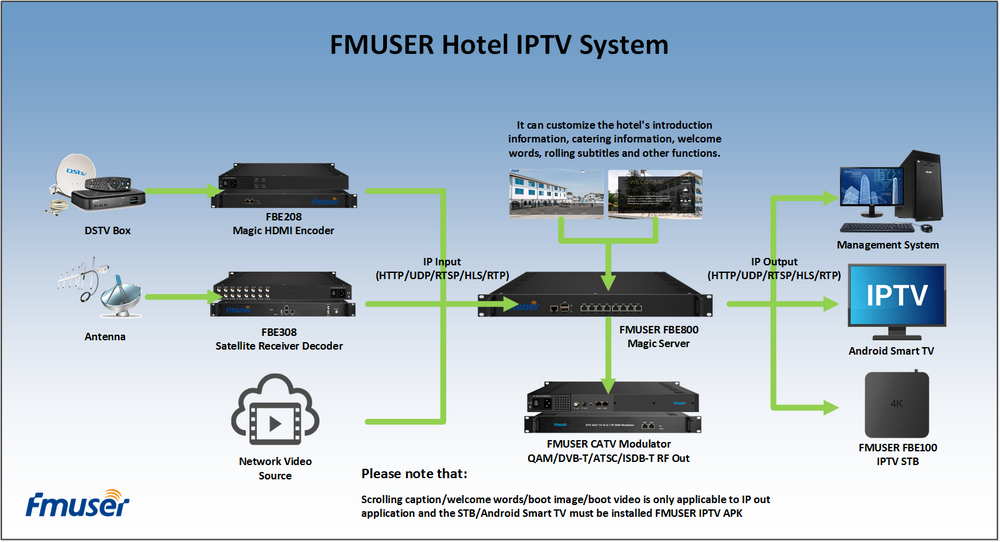
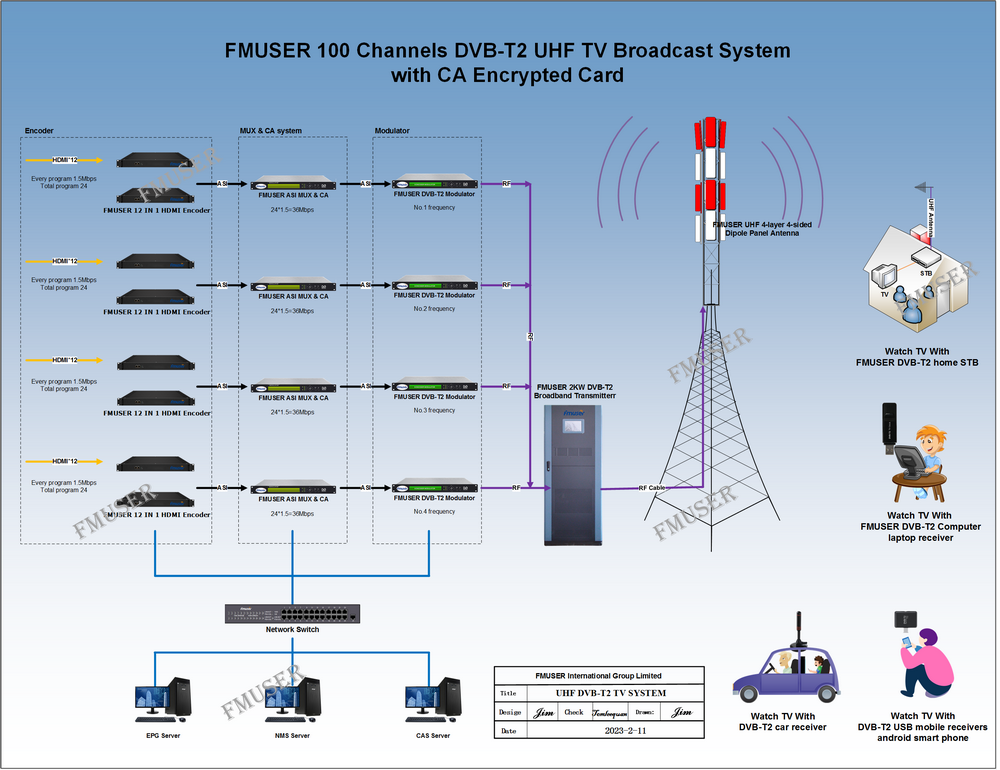
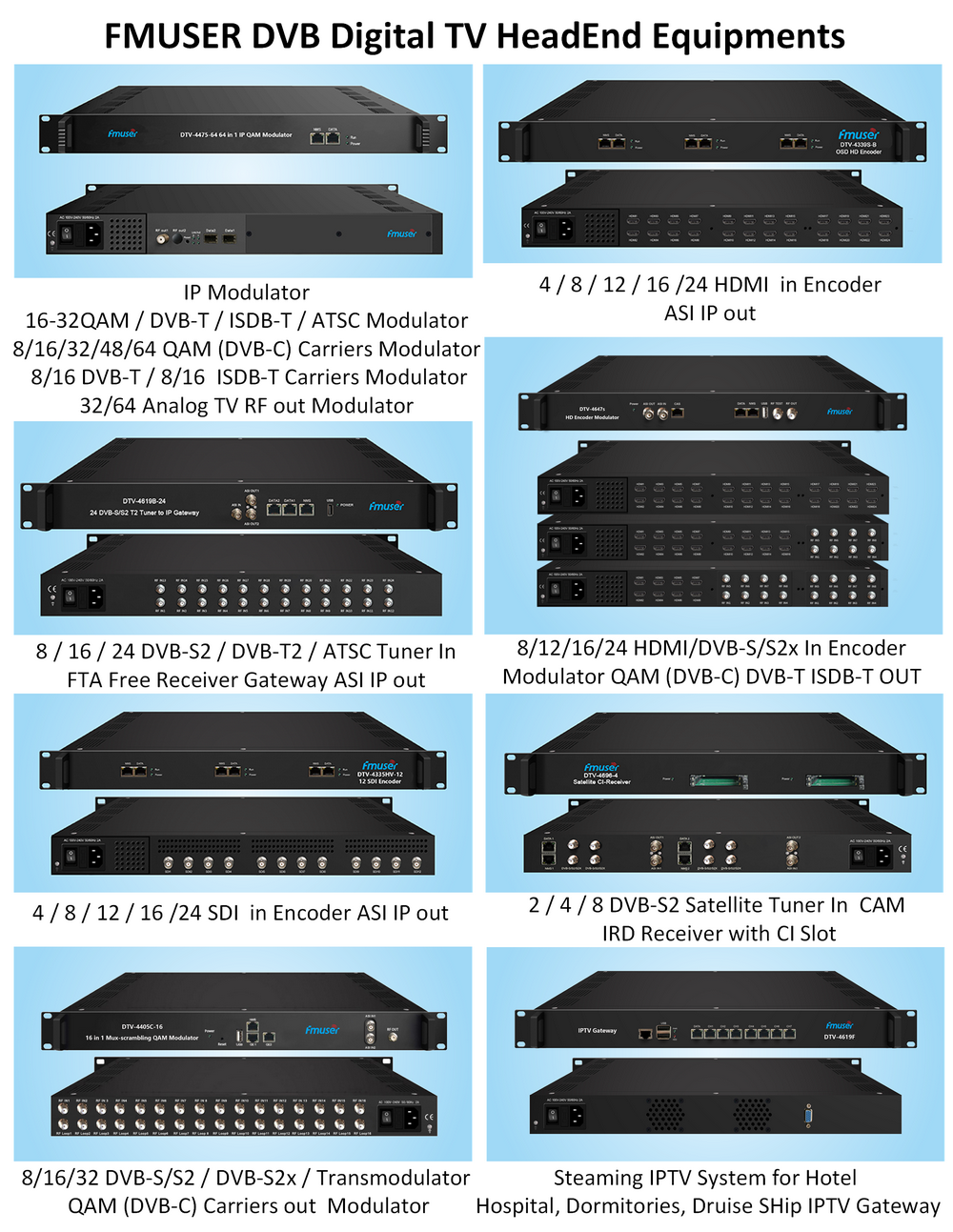
|
|
|
|
How far(long) the transmitter cover?
The transmission range depends on many factors. The true distance is based on the antenna installing height , antenna gain, using environment like building and other obstructions , sensitivity of the receiver, antenna of the receiver . Installing antenna more high and using in the countryside , the distance will much more far.
EXAMPLE 5W FM Transmitter use in the city and hometown:
I have a USA customer use 5W fm transmitter with GP antenna in his hometown ,and he test it with a car, it cover 10km(6.21mile).
I test the 5W fm transmitter with GP antenna in my hometown ,it cover about 2km(1.24mile).
I test the 5W fm transmitter with GP antenna in Guangzhou city ,it cover about only 300meter(984ft).
Below are the approximate range of different power FM Transmitters. ( The range is diameter )
0.1W ~ 5W FM Transmitter :100M ~1KM
5W ~15W FM Ttransmitter : 1KM ~ 3KM
15W ~ 80W FM Transmitter : 3KM ~10KM
80W ~500W FM Transmitter : 10KM ~30KM
500W ~1000W FM Transmitter : 30KM ~ 50KM
1KW ~ 2KW FM Transmitter : 50KM ~100KM
2KW ~5KW FM Transmitter : 100KM ~150KM
5KW ~10KW FM Transmitter : 150KM ~200KM
How to contact us for the transmitter?
Call me +8618078869184 OR
Email me [email protected]
1.How far you want to cover in diameter ?
2.How tall of you tower ?
3.Where are you from ?
And we will give you more professional advice.
About Us
FMUSER.ORG is a system integration company focusing on RF wireless transmission / studio video audio equipment / streaming and data processing .We are providing everything from advice and consultancy through rack integration to installation, commissioning and training.
We offer FM Transmitter, Analog TV Transmitter, Digital TV transmitter, VHF UHF Transmitter, Antennas, Coaxial Cable Connectors, STL, On Air Processing, Broadcast Products for the Studio, RF Signal Monitoring, RDS Encoders, Audio Processors and Remote Site Control Units, IPTV Products, Video / Audio Encoder / Decoder, designed to meet the needs of both large international broadcast networks and small private stations alike.
Our solution has FM Radio Station / Analog TV Station / Digital TV Station / Audio Video Studio Equipment / Studio Transmitter Link / Transmitter Telemetry System / Hotel TV System / IPTV Live Broadcasting / Streaming Live Broadcast / Video Conference / CATV Broadcasting system.
We are using advanced technology products for all the systems, because we know the high reliability and high performance are so important for the system and solution . At the same time we also have to make sure our products system with a very reasonable price.
We have customers of public and commercial broadcasters, telecom operators and regulation authorities , and we also offer solution and products to many hundreds of smaller, local and community broadcasters .
FMUSER.ORG has been exporting more than 15 years and have clients all over the world. With 13 years experience in this field ,we have a professional team to solve customer's all kinds of problems. We dedicated in supplying the extremely reasonable pricing of professional products & services. Contact email : [email protected]
Our Factory
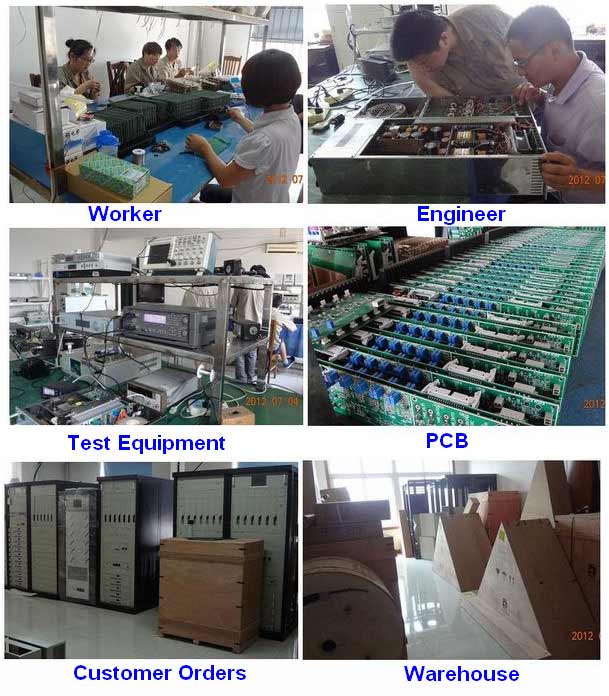
We have modernization of the factory . You are welcome to visit our factory when you come to China.
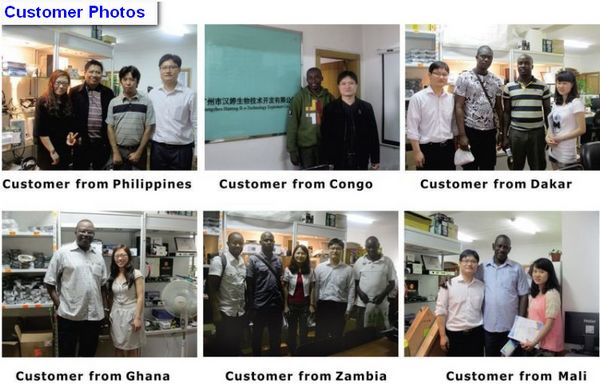
At present , there are already 1095 customers around the world visited our Guangzhou Tianhe office . If you come to China , you are welcome to visit us .
At Fair
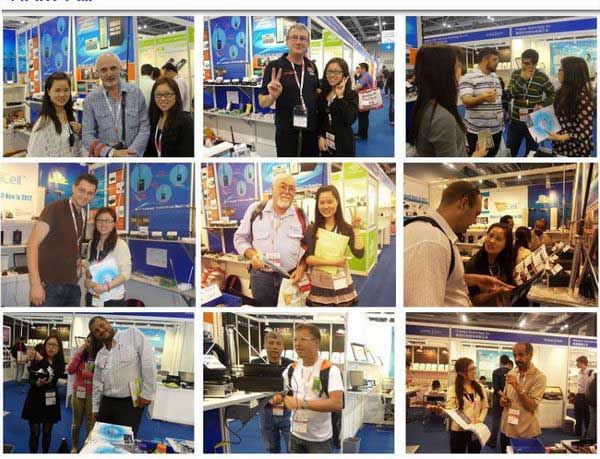
This is our participation in 2012 Global Sources Hong Kong Electronics Fair . Customers from all over the world finally have a chance to get together.
Where is Fmuser ?
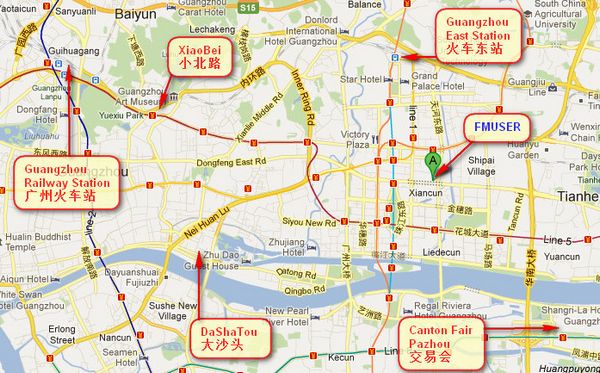
You can search this numbers " 23.127460034623816,113.33224654197693 " in google map , then you can find our fmuser office .
FMUSER Guangzhou office is in Tianhe District which is the center of the Canton . Very near to the Canton Fair , guangzhou railway station, xiaobei road and dashatou , only need 10 minutes if take TAXI . Welcome friends around the world to visit and negotiate .
Contact: Sky Blue
Cellphone: +8618078869184
WhatsApp: +8618078869184
Wechat: +8618078869184
E-mail: [email protected]
QQ: 727926717
Skype: sky198710021
Address: No.305 Room HuiLan Building No.273 Huanpu Road Guangzhou China Zip:510620
|
|
|
|
English: We accept all payments , such as PayPal, Credit Card, Western Union, Alipay, Money Bookers, T/T, LC, DP, DA, OA, Payoneer, If you have any question , please contact me [email protected] or WhatsApp +8618078869184
-
PayPal.  www.paypal.com www.paypal.com
We recommend you use Paypal to buy our items ,The Paypal is a secure way to buy on internet .
Every of our item list page bottom on top have a paypal logo to pay.
Credit Card.If you do not have paypal,but you have credit card,you also can click the Yellow PayPal button to pay with your credit card.
---------------------------------------------------------------------
But if you have not a credit card and not have a paypal account or difficult to got a paypal accout ,You can use the following:
Western Union.  www.westernunion.com www.westernunion.com
Pay by Western Union to me :
First name/Given name: Yingfeng
Last name/Surname/ Family name: Zhang
Full name: Yingfeng Zhang
Country: China
City: Guangzhou
|
---------------------------------------------------------------------
T/T . Pay by T/T (wire transfer/ Telegraphic Transfer/ Bank Transfer)
First BANK INFORMATION (COMPANY ACCOUNT):
SWIFT BIC: BKCHHKHHXXX
Bank name: BANK OF CHINA (HONG KONG) LIMITED, HONG KONG
Bank Address: BANK OF CHINA TOWER, 1 GARDEN ROAD, CENTRAL, HONG KONG
BANK CODE: 012
Account Name : FMUSER INTERNATIONAL GROUP LIMITED
Account NO. : 012-676-2-007855-0
---------------------------------------------------------------------
Second BANK INFORMATION (COMPANY ACCOUNT):
Beneficiary: Fmuser International Group Inc
Account Number: 44050158090900000337
Beneficiary's Bank: China Construction Bank Guangdong Branch
SWIFT Code: PCBCCNBJGDX
Address: NO.553 Tianhe Road, Guangzhou, Guangdong,Tianhe District, China
**Note: When you transfer money to our bank account, please DO NOT write anything in the remark area, otherwise we won't be able to receive the payment due to government policy on international trade business.
|
|
|
|
* It will be sent in 1-2 working days when payment clear.
* We will send it to your paypal address. If you want to change address, please send your correct address and phone number to my email [email protected]
* If the packages is below 2kg,we will be shipped via post airmail, it will take about 15-25days to your hand.
If the package is more than 2kg,we will ship via EMS , DHL , UPS, Fedex fast express delivery,it will take about 7~15days to your hand.
If the package more than 100kg , we will send via DHL or air freight. It will take about 3~7days to your hand.
All the packages are form China guangzhou.
* Package will be sent as a "gift" and declear as less as possible,buyer don't need to pay for "TAX".
* After ship, we will send you an E-mail and give you the tracking number.
|
|
|
For Warranty .
Contact US--->>Return the item to us--->>Receive and send another replace .
Name: Liu xiaoxia
Address: 305Fang HuiLanGe HuangPuDaDaoXi 273Hao TianHeQu Guangzhou China.
ZIP:510620
Phone: +8618078869184
Please return to this address and write your paypal address,name,problem on note: |
|















